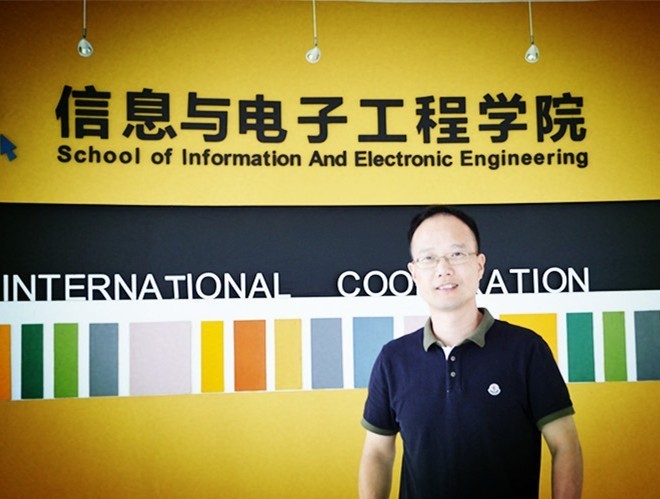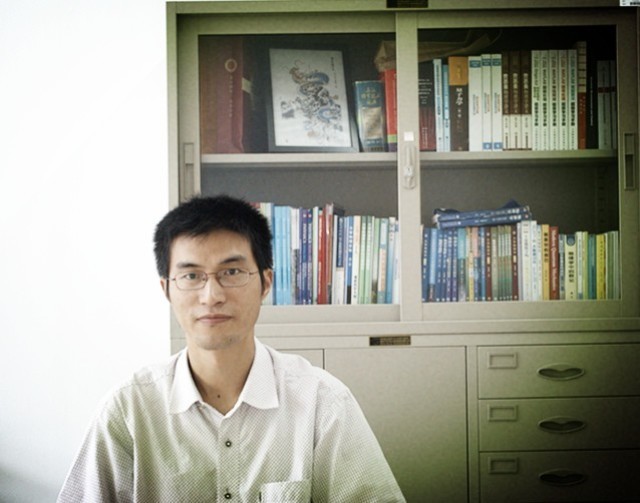
Mr. Zhou (Zhou Guangping), teaching overseas students computer science, who is popular to them. In the situation of students’ weak study basis, Mr. Zhou is often being patient to guide them to study well. To help consolidate what overseas students have learned and improve their ability of study, Mr. Zhou intends to arrange some specific exercises for them, like on-line practice, multiple choice questions, gap filling, etc. which help students understand the curriculum and digest the knowledge a lot. As the old saying goes, ‘Practice makes perfect.’ Mr. Zhou in addition adds some class assignments such as computer programming. What makes him gratified is that students work very hard although their basis’s poor. “They are pretty active and they’d like to take the initiative to ask me questions. I won’t feel tired until I help them figure out answers. When it comes to the difficulties
Mr. Zhou have ever met with, he smiles and says: ‘Except some students’ poor English, different culture backgrounds seem to get in the way of good communications between overseas students and I. It’s important and necessary to find something in foreign countries corresponding to the thing I describe in China.’ Coming up with some effortless students, Mr. Zhou tells them about his daughter’s story, who’s in high school getting up at6:30 and arriving at home at 5:30 everyday and needing to do two-hour homework. This story does astonished students and to some extent encourages them a lot. Some students are never late for class anymore.

Mr. Luo (Luo Junyan), teaching overseas students and Chinese students civil engineering and biochemical engineering, who is known to them. Mr. Luo is such an excellent teacher who is honored as ‘Outstanding Class Teacher’ and ZUST ‘Three Aspects of Education’ Advanced Individual as well as gets the first place in the Teaching contest of Young Teachers at institute of science and technology of ZUST. During the process of teaching activities, Mr. Luo finds that overseas students generally have poor basis, but better language competence and active learning attitude are their advantages, which helps Mr. Luo know better about students’ learning curve and mastery of knowledge to set up the teaching plan. Mr. Luo is good at using materials in the classroom to help students understand physical principles well. For example, he would like to let students go to the platform to hold two different-length pointers in the palm to see which one falls down firstly in order to feel differences of force. What’s more, Mr. Luo also tries to let students observe the door knob to learn the structure. In the meanwhile, Mr. Luo is very strict to them and being late for class is not allowed, otherwise, students can get F in the exam. ‘Of course I have negotiated these rules with overseas students,’ says Mr. Luo, ‘they ask for equality, once you keep strictly the rules for reward and punishment, there will be no objection.’ Because of good communications between students and Mr. Luo, the class principle is good, which is also beneficial to his own work. What’s more, Mr. Luo says that some students work very hard and it’s normal for him to spare his own time to help them grasp the knowledge. ‘It’s worthy and I can’t be happier to see my students work that hard.’ Mr. Luo smiles.